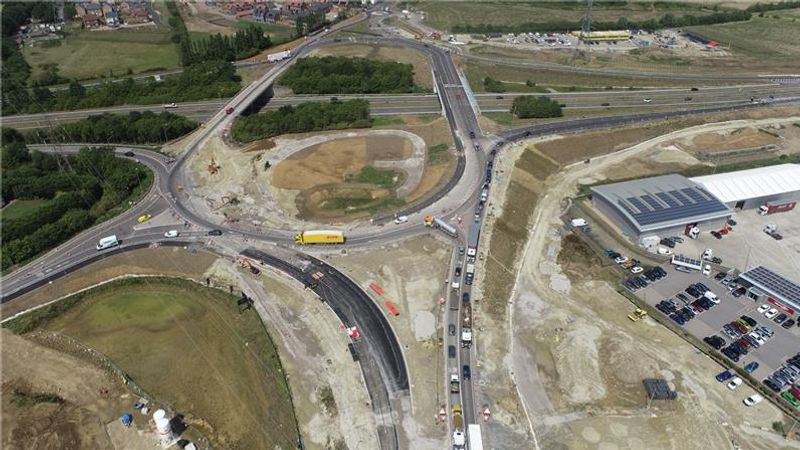Following the latest delay to the launch of the EU’s Entry Exit System (EES) checks, the Leader of Kent County Council (KCC) has told a House of Lords committee that Government must keep its foot on the pedal to limit the impact on Kent when the checks are introduced.
Roger Gough was giving evidence to the Justice and Home Affairs committee, accompanied by John Keefe, from Getlink Group (Eurotunnel), Kevin Mills, Leader of Dover District Council, and Eurostar’s Gareth Williams.
The EU announced last Thursday (10 October) that it is delaying the introduction of EES checks, due to begin on 10 November, because three member states, France, Germany and the Netherlands, say they will not be ready to process passengers at their borders due to insufficient technology being in place. No further date has been given for the checks to begin, but the EU has suggested that a ‘phased approach’ is being considered.
The new EES checks will require travellers from countries outside the EU to register biometrics such as facial and fingerprint scans at their first point of entry.
Roger Gough has repeatedly warned Government there is a high risk that extended processing times for passengers at the border could result in serious congestion on the roads, causing delays for those travelling through the county. This would then have a knock-on effect on Kent communities and businesses along the route to Dover.

“We have always argued that the key thing is to ease some of the points of vulnerability, and there are various ways this could be done.”
He told the committee members: “The delay certainly comes as a relief and gives an opportunity for some of the key outstanding issues to be addressed. I think what we don’t know is what form this delay will take, both how long it is, and what might be done during that time.
“We have always argued that the key thing is to ease some of the points of vulnerability, and there are various ways this could be done. One is to opt for the use of an app and remote registration, and at the moment there are practical and regulatory barriers to that in terms of how the EU rules work. Prior to the date being pulled there was talk of some sort of ‘soft launch’ and slightly more pragmatic ways to introduce EES checks. The key thing is to avoid a sort of sudden point when this becomes a problem.
“A great deal of work has gone on to try to mitigate the impact of EU EES checks, but I think we would all agree that there are some residual serious risks, and there may be an opportunity to address those more effectively now that we’ve got the delay.
“We should not let a good crisis go to waste. Whilst this was very much about EES it has also been an opportunity to bring home to Government, as we have sought to do over many years, that there is a long running problem in Kent. There are a number of things that need to be done to address that, but we are still waiting some of those big structural solutions.”
Both John Keefe, of Eurotunnel, and Gavin Williams, Eurostar, told the committee that the development of an app to enable pre-registration for EES checks should be a priority for the EU.
Meanwhile, the EU is planning to introduce a €7 (£6) EU visa waiver for some non-EU citizens, including Britons, by summer 2025. The new scheme will be called the European Travel Information and Authorisation System (ETIAS).The EU originally announced that the ETIAS will come into force six months after the introduction of EES checks.
Further information
You can rewatch the committee meeting here: Parliamentlive.tv - Justice and Home Affairs Committee




